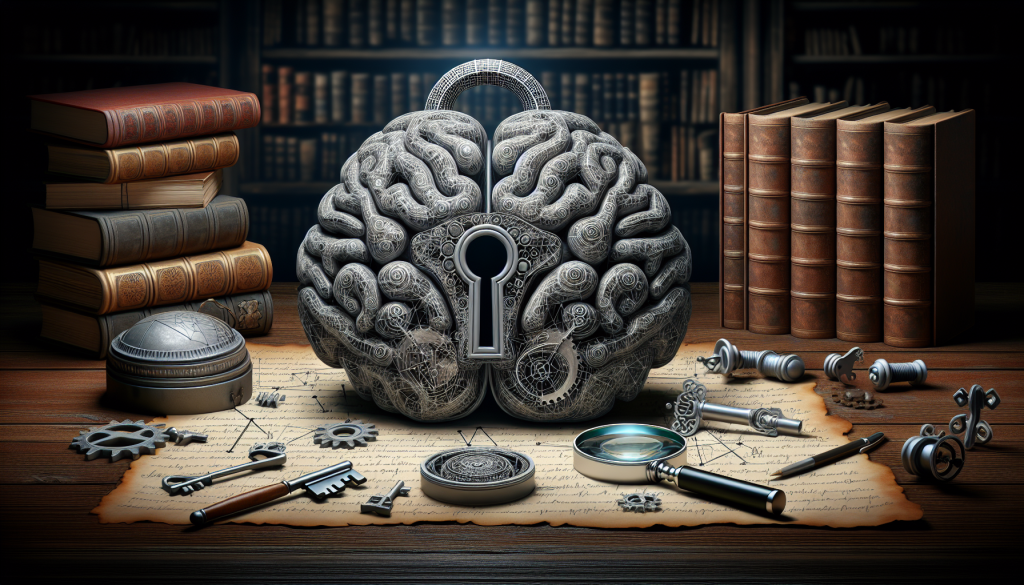
Gray Matters: Unlocking the Mysteries of the Aging Brain
The aging brain has been a subject of fascination and curiosity throughout history. It is often said that with age comes wisdom, but what happens to the brain as it ages? Why do some people seem to have a sharper memory and better cognitive function as they grow older, while others struggle to remember even the simplest things?
In recent years, there has been a surge of interest in understanding the aging brain and its mysteries. Scientists and researchers have been delving deeper into the complexities of the brain and its functions, in hopes of uncovering the secrets behind the seemingly inevitable decline that comes with age. And one thing is clear, there is no one-size-fits-all answer when it comes to the aging brain.
In this article, we will explore the fascinating world of the aging brain, and how we can unlock the mysteries that lie within the gray matter.
Understanding the Aging Brain
As we age, our brain goes through significant changes. These changes can start as early as our 20s, but are most noticeable in our 60s and beyond. The aging process affects the brain in various ways, including the loss of neurons, shrinkage of brain tissue, and changes in neural connections.
One of the most significant changes in the aging brain is the decline in cognitive function, including memory, attention, and problem-solving skills. This decline can be attributed to the decrease in the brain’s capacity to generate new cells and form new connections, along with the buildup of toxins and free radicals that affect brain function.
Factors that Affect Brain Aging
While aging is a natural process, there are certain factors that can accelerate brain aging and contribute to cognitive decline. These factors include genetics, lifestyle choices, and underlying health conditions.
Family history plays a significant role in brain aging, as some individuals may be genetically predisposed to conditions like Alzheimer’s and dementia. However, research has also shown that lifestyle choices, such as diet, exercise, and cognitive activities, can positively impact brain health and slow down the aging process.
Furthermore, chronic diseases like diabetes, high blood pressure, and heart disease can also affect brain function and speed up the aging process. Therefore, it is essential to maintain a healthy lifestyle and manage any underlying health conditions to keep the brain healthy as we age.
The Role of Gray Matter in Aging
The gray matter of the brain is responsible for various crucial functions, such as sensory perception, speech, and muscle control. It is also where memories are stored, making it a vital area of study in the aging brain.
Studies have shown that the gray matter in the brain shrinks with age, leading to cognitive decline. However, recent research has also found that gray matter can regenerate and form new connections, even in older adults. This means that it is possible to slow down the aging process and improve cognitive function by stimulating the growth of new gray matter.
Unlocking the Mysteries of the Aging Brain
Thanks to cutting-edge technology, brain imaging techniques, and groundbreaking research, we are slowly unraveling the mysteries of the aging brain. These advancements have allowed scientists to study the brain like never before, providing a deeper understanding of how it works and how it ages.
One of the most promising areas of research is neuroplasticity, the brain’s ability to change and adapt. Scientists have discovered that the brain can form new connections and pathways, even in old age, through activities like learning, exercise, and cognitive training. This means that by incorporating these activities into our daily lives, we can potentially slow down the aging process and improve brain function.
The Future of Aging Brain Research
The study of the aging brain is an ever-evolving field, and new discoveries are being made every day. This gives hope to the millions of people around the world who are affected by age-related cognitive decline.
With more research and advancements in technology, scientists are optimistic about finding new ways to keep our brains healthy as we age. From personalized interventions to targeted treatments, the future of aging brain research holds tremendous potential.
Conclusion
While the mysteries of the aging brain may still be complex and enigmatic, one thing is certain – we have the power to influence how our brain ages. By making healthy lifestyle choices, engaging in cognitive activities, and staying up-to-date with advancements in brain research, we can potentially unlock the secrets of the aging brain and lead fulfilling lives well into our golden years.
In conclusion, our gray matter may hold many mysteries, but with ongoing research and our understanding of the brain’s capabilities, we can work towards keeping our brains healthy and young, no matter our age.